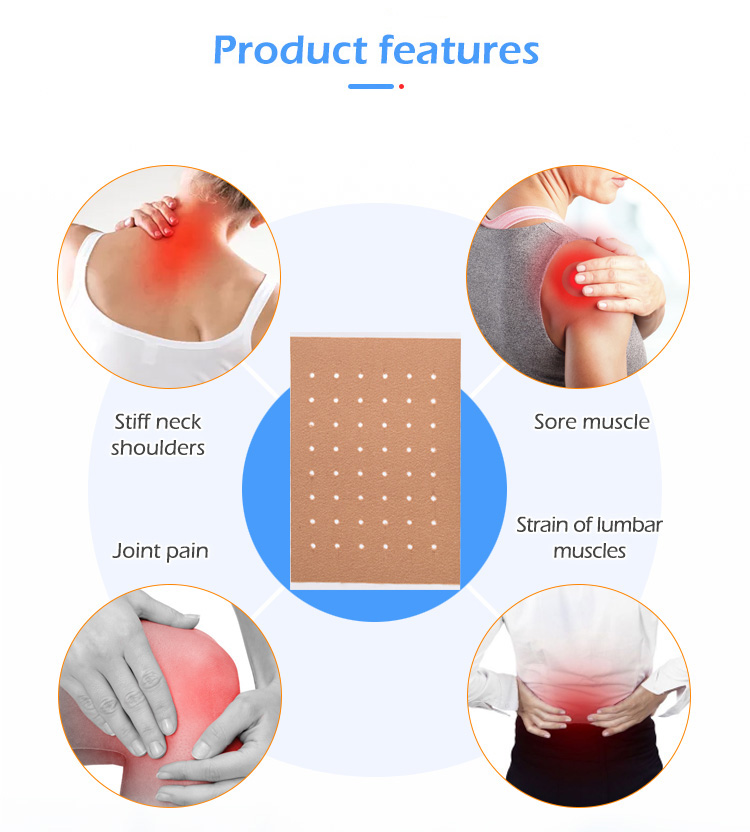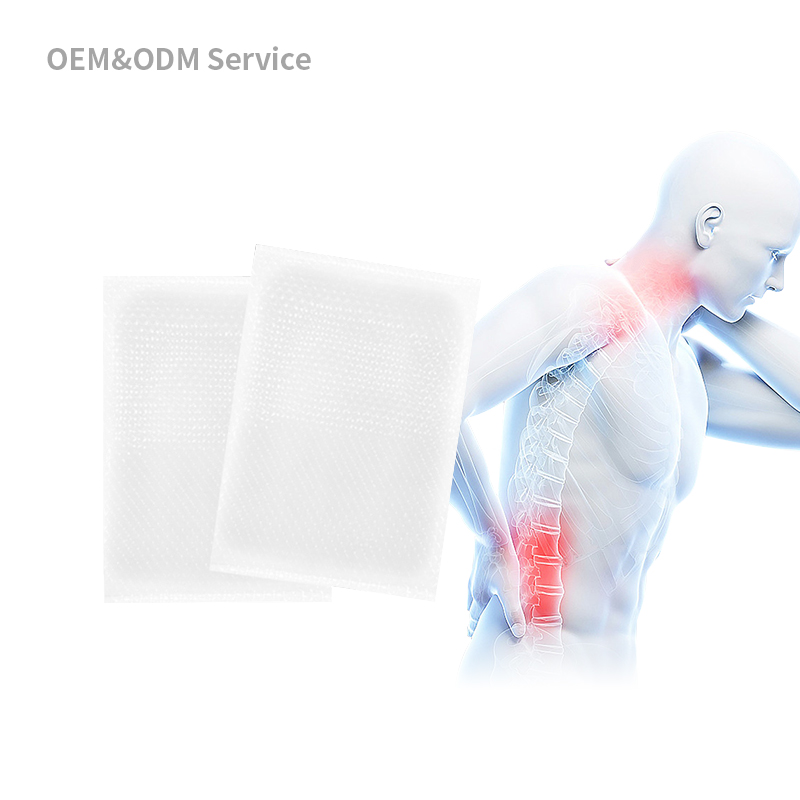What Should I Look for in a Reliable Healthcare Pain Relief Patches Supplier?
Selecting a reliable Healthcare Pain Relief Patches Supplier is a critical decision for businesses looking to deliver quality products and build a reputable brand. Whether you are considering Custom Healthcare Pain Relief Patches or Private Label Healthcare Pain Relief Patches, the supplier you choose plays a pivotal role in your success. This article explores the key factors to evaluate when selecting a supplier, ensuring you make an informed decision that aligns with your brand’s needs and goals.

1. Understanding the Role of a Healthcare Pain Relief Patches Supplier
A Healthcare Pain Relief Patches Supplier provides raw materials, expertise, and manufacturing capabilities necessary to produce high-quality pain relief patches. They often work closely with Healthcare Pain Relief Patches Manufacturers and Healthcare Pain Relief Patches OEMs to deliver tailored solutions, such as custom formulations, private labeling, and regulatory compliance support.
Key functions of a supplier include:
- Ensuring product consistency and quality.
- Offering scalable production capabilities.
- Providing technical and regulatory expertise.
2. Factors to Consider When Choosing a Supplier
2.1 Product Quality and Consistency
The effectiveness and safety of your pain relief patches directly impact customer trust and satisfaction. Look for a supplier with:
- Proven experience in producing Custom Healthcare Pain Relief Patches.
- Quality certifications such as ISO, GMP, or FDA compliance.
- A strong quality control process to ensure consistency across batches.
2.2 Customization Capabilities
Customization is crucial for creating unique products that meet specific market needs. Evaluate the supplier’s ability to:
- Develop Custom Healthcare Pain Relief Patches with tailored ingredients.
- Offer flexible patch sizes, shapes, and packaging designs.
- Provide options for natural, hypoallergenic, or eco-friendly materials.
2.3 Regulatory Compliance
Healthcare products are subject to strict regulatory standards. Choose a supplier familiar with:
- International regulations (e.g., FDA in the U.S., CE in Europe).
- Local certifications required for your target markets.
- Documentation and testing processes to ensure compliance.
2.4 Experience and Reputation
A well-established supplier brings expertise and reliability. Assess their:
- Track record in the industry.
- Partnerships with reputable Healthcare Pain Relief Patches Manufacturers or OEMs.
- Reviews and testimonials from other clients.
2.5 Manufacturing Capacity
Your supplier should be able to meet your current and future production needs. Key considerations include:
- Production scalability for large orders.
- Modern equipment and facilities for efficient manufacturing.
- Lead times for order fulfillment.
2.6 Innovation and R&D Support
Innovation helps you stay ahead in the competitive healthcare market. A good supplier should:
- Invest in research and development.
- Offer new technologies for enhanced patch efficacy.
- Provide innovative solutions, such as extended-release patches or biodegradable options.
2.7 Cost-Effectiveness
While cost is important, prioritize value over the lowest price. Ensure the supplier:
- Provides competitive pricing without compromising quality.
- Offers transparency in pricing, including hidden costs.
- Supports cost-saving measures like bulk discounts.
2.8 Communication and Customer Support
Effective communication is key to a successful partnership. Evaluate the supplier’s:
- Responsiveness to inquiries and issues.
- Willingness to provide technical and marketing support.
- Clear and consistent updates during production.
3. Steps to Evaluate and Select the Right Supplier
3.1 Define Your Requirements
Outline your specific needs, including:
- Desired product features (e.g., active ingredients, patch sizes).
- Target markets and regulatory standards.
- Budget and production timelines.
3.2 Research Potential Suppliers
Use online directories, trade shows, and referrals to identify potential suppliers. Focus on those specializing in Private Label Healthcare Pain Relief Patches and custom solutions.
3.3 Request Samples
Ask for product samples to evaluate quality and consistency. Conduct internal or third-party testing to confirm performance.
3.4 Conduct Site Audits
Visit the supplier’s facilities to assess their manufacturing capabilities, quality control processes, and adherence to regulations.
3.5 Review Contracts and Agreements
Carefully review terms related to:
- Pricing and payment schedules.
- Minimum order quantities (MOQs).
- Intellectual property rights for custom designs.
3.6 Start with a Trial Order
Place a small order to assess the supplier’s reliability, production timelines, and quality control.
4. Benefits of Partnering with the Right Supplier
A reliable Healthcare Pain Relief Patches Supplier can provide several advantages:
- High-Quality Products: Enhance customer satisfaction and brand reputation.
- Cost Efficiency: Streamlined production processes reduce overhead costs.
- Market Differentiation: Customization options help create unique products.
- Regulatory Assurance: Compliance expertise ensures seamless market entry.
5. Common Mistakes to Avoid
- Focusing Solely on Price: Cheap suppliers often compromise on quality, leading to customer dissatisfaction.
- Neglecting Regulatory Checks: Non-compliance can result in legal issues and product recalls.
- Overlooking Communication: Poor communication can delay production and lead to misunderstandings.
6. Conclusion
Choosing the right Healthcare Pain Relief Patches Supplier is essential for producing high-quality products that resonate with your target audience. By considering factors like quality, customization capabilities, regulatory compliance, and cost-effectiveness, you can build a strong partnership that drives business growth and customer satisfaction.
Related Questions and Answers
Why is quality important in a Healthcare Pain Relief Patches Supplier?
Answer: High-quality products build customer trust, ensure safety, and enhance brand reputation.What customization options can a supplier provide?
Answer: Customization options include tailored ingredients, patch sizes, packaging designs, and eco-friendly materials.How do I verify a supplier’s regulatory compliance?
Answer: Check for certifications like FDA, ISO, or CE and review their documentation processes.What is the role of an OEM in pain relief patch production?
Answer: An OEM provides expertise, manufacturing capabilities, and customization services for private label products.How can I find a reliable supplier?
Answer: Research industry directories, attend trade shows, and evaluate suppliers’ reputation, experience, and customer reviews.






